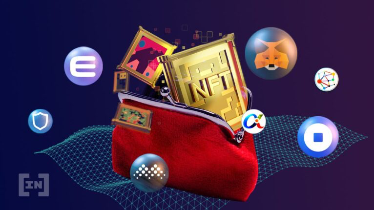If you want to collect or invest in non-fungible tokens, you’ll need an NFT wallet. An NFT wallet is a cryptocurrency wallet that supports NFT-related token specifications, such as ERC-721 and ERC-1155 for Ethereum and Metaplex for Solana.
Because the Ethereum blockchain is used by the great majority of NFTs, most Ethereum wallets will work. However, wallets that support Solana NFTs will also be covered in this article.
Here’s a rundown of the top NFT wallets, as well as some tips on what to look for while selecting one:
- Phantom Wallet
Phantom Wallet comes as an iOS and Android app and is also available as an extension on the Google Chrome toolbar, making it easy to use. Phantom has quickly become one of the most popular Solana wallet solutions because of its simplicity and breadth of features.
This simple program not only allows you to access your SOL but also contains tools for examining your NFT collection.
It also accepts SPL tokens, which means you’ll have complete control over your tokens whether you want to exchange USDC tokens for SOL or engage in Solana’s fascinating world of Defi and DApps. Staking is also natively enabled by the Phantom wallet, so it’s as easy as clicking a button to start earning rewards.
Furthermore, they prioritize the most popular validators, allowing big validators to amass stakes while impeding attempts to decentralize the network.The combination of these two products gives one of the most secure digital wallet alternatives today.
- Ambire Wallet
Ambire is the first power user wallet that has been launched as a web app, as opposed to other non-mobile wallets that are browser extensions. The team believes that installing a browser extension is a big barrier for crypto newcomers as well as crypto-curious persons with computer skills who may be worried about extension security.
Later on, an extension will be made available for connecting to dApps that do not support WalletConnect. Ambire is an open-source project that was built with security in mind, with several audits completed on both the smart contracts and the user interface.
Ambire is the world’s first open-source non-custodial wallet that accepts email signup. This means that users don’t have to be concerned about seed phrases while still having total control over their wallets.
Customers may self-host their wallets since the application is open-source, even if Ambire is unavailable for any reason. A continuous airdrop incentivizes users to keep their money in the Ambire wallet by distributing the native $WALLET token.
- MetaMask
One of the most popular bitcoin wallets is Metamask. Its browser plugin gives you quick access to web3 sites like NFT markets with only a few clicks. Metamask also makes it simple to create several addresses, allowing you to keep your NFTs at a different address from your Bitcoin, or you may create a single address for each NFT you acquire.
ConsenSys, the firm behind Metamask, plans to release a mobile app in 2020. The wallet’s holdings sync properly across the desktop and mobile versions. The mobile app also contains a browser for decentralized apps (dApps) and NFT markets.
If you need to exchange currencies to purchase an NFT, Metamask includes a built-in swap facility. You may also set a limit on how much you spend on gas costs, albeit there is a danger that the transaction will fail. If you need to utilize a different blockchain, Metamask supports several platforms.
Conclusion
NFT wallets grant access to the assets stored on the blockchain. It does this by sending a private key to that address, allowing the wallet owner to approve transactions. You own anything at that address if you have the private key.
A wallet will handle all of the technical details for you and give a user-friendly interface for purchasing, trading, and transferring NFTs or cryptocurrencies. Furthermore, it may give greater security with two-factor authentication and a handy method to monitor your assets across devices.

